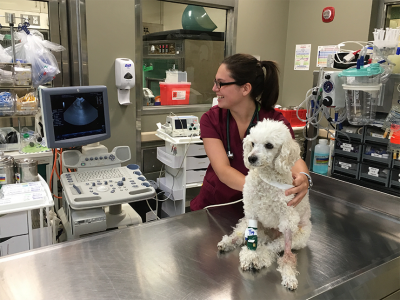Hello! My name is Elton Chan and I worked as an Emergency and Critical Care Medicine (ECCM) Student Summer Fellow in the MSU ICU. The Class of 2017 graduated in May and the Emergency Department hired five underclassmen to work in the capacity of fourth-year students to fill the gaps in the Emergency and Critical Care Medicine Clerkship academic course between May and August. The five of us worked alongside eight rotating upperclassmen. We were divided into day and night shifts, swapping assignments in the middle of each three-week rotation.
The first week in clinics was anything but graceful. You’re essentially diving head-first into this fast-moving river with a workflow and culture that you’re pretty much clueless about. Much of the early frustration centered not on medicine but logistics: learning how to place orders (correctly) for radiographs, anesthesia requests, pharmacy scripts, bloodwork, treatments, using three different Hospital computer systems, where to go for x, and who to talk to for y.
Our responsibilities included morning treatments, triaging new patients, calling/updating owners, drafting treatment sheets, writing pharmacy prescriptions, composing electronic medical records, collecting patient history/physical exam data, presenting cases, discharging patients, fielding general phone calls, and much more. Each of us pulled in an excess of 50 hours per week. It was awesome to realize how quickly we were learning to think like doctors and come up with our differential diagnoses and appropriate treatments.

The centerpiece of this rotation is the responsibility of triaging and working up animals who arrive at MSU. The front desk calls the ICU, someone yells “Triage!” and students hustle to the lobby to evaluate the animal’s stability based on its cardiovascular, pulmonary, and neurological status. Stable animals can wait in the lobby until the next student in the queue can start its workup. Unstable animals are triaged to the treatment area immediately for intervention. Working up a case involves collecting the patient’s history and performing a physical exam for presentation to an intern, resident, or attending. The two individuals then will reconvene with the client and offer the appropriate diagnostic and treatment recommendations based on the student’s initial findings. With that said, there’s a lot of responsibility built into this arrangement and there’s always a gnawing fear of failing to assess a case correctly.
The ECCM Summer Student Fellowship is hands down THE BEST experience I’ve ever had. It was an immense privilege to work alongside the dedicated nurses, doctors, and support staff of the ICU. I strongly encourage those of you who are considering a future and/or specialization in emergency medicine to apply and to get involved early.
